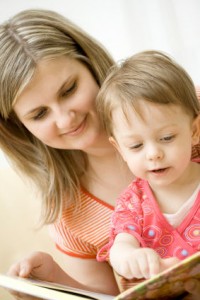A responsible sitter should be prepared to handle the different needs of a child as well as emergency situations. Here are three important things that every sitter should know:
1. How to contact the parents.
Make sure you have the right contact information, especially mobile or phone numbers, of the parents. Even if you have been babysitting a child for quite some time, it is important that you regularly update the contact details. Some parents may get a new mobile phone number and forgot to update you. It would also help if you have a backup number such as the office phone number or neighbor, in case the other telephone number is not 
2. Where medical supplies and health information are located.
Inquire about where to find medical information about the child such as baby book, prescription medication, allergies, etc. You can also use downloadable babysitting health information forms and have the parent complete it. Ideally, you should get this information in advance so that you know what to expect when caring for the child.
It is recommended that parents have a first aid kit. If there is none, assist the parent in making one or encourage them to buy one. Make sure you know where the first aid kit is located, as well as how to use these supplies. Use these supplies only for emergency situations. If ever you need to use supplies from the kit, inform the parent so they can restock it later on.
If the child is taking any medications, ask the parent to demonstrate it to you. Before giving any medicine, make sure to read the label and check the expiration date. After administering medication, close the medicine container and store in a secured place.
Some children have allergies to certain foods or substances. Know these allergies so you can prevent them. Usually, children who have previously been diagnosed with allergic reactions are prescribed emergency medicine such as injectable epinephrine. Ask the parent to demonstrate how to use the auto-injector.
3. How to ensure child’s safety.
Children are naturally explorative, thus they are at high risk for injuries. In fact, accidents are the leading reasons why children are brought to the emergency room or doctor’s office. Supervision is the key to preventing these unnecessary injuries. Never leave the child unattended especially around hazards. As much as possible, assess and minimize home hazards.
While babysitting, avoid activities that can cause you to be distracted such as texting, surfing the net, calling the phone, etc. Very young children require constant supervision.
If parents ask you to perform tasks you have never done before or not confident to do, tell them. Some examples include administering special medications, driving kids to an unknown place and using home appliances or equipment.
Ask where the family stores safety and emergency equipment, such as flashlights, fire extinguishers and batteries. You can respond to emergencies better if you have the right equipment.
Check with your community center, local hospital or local workplace approved chapter if they offer infant/child CPR or other first aid courses. It is also best to complete a babysitting course so that you will gain confidence and skills in handling the needs of children – as well as all sorts of situations.
Related Video
http://www.youtube.com/watch?v=ycbxxXFsYUc
